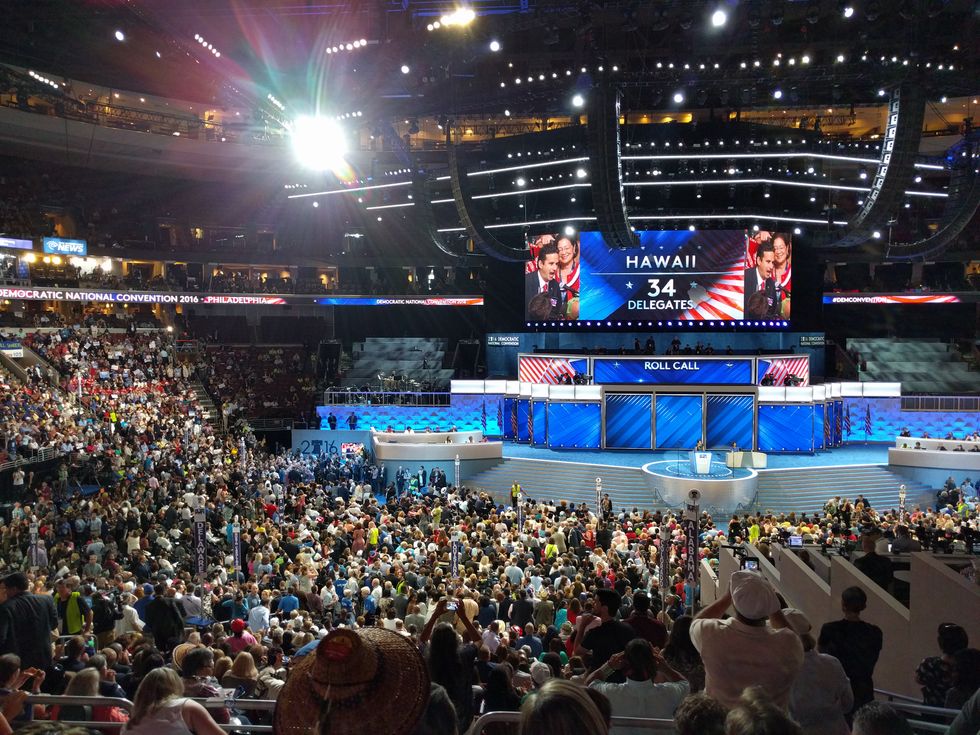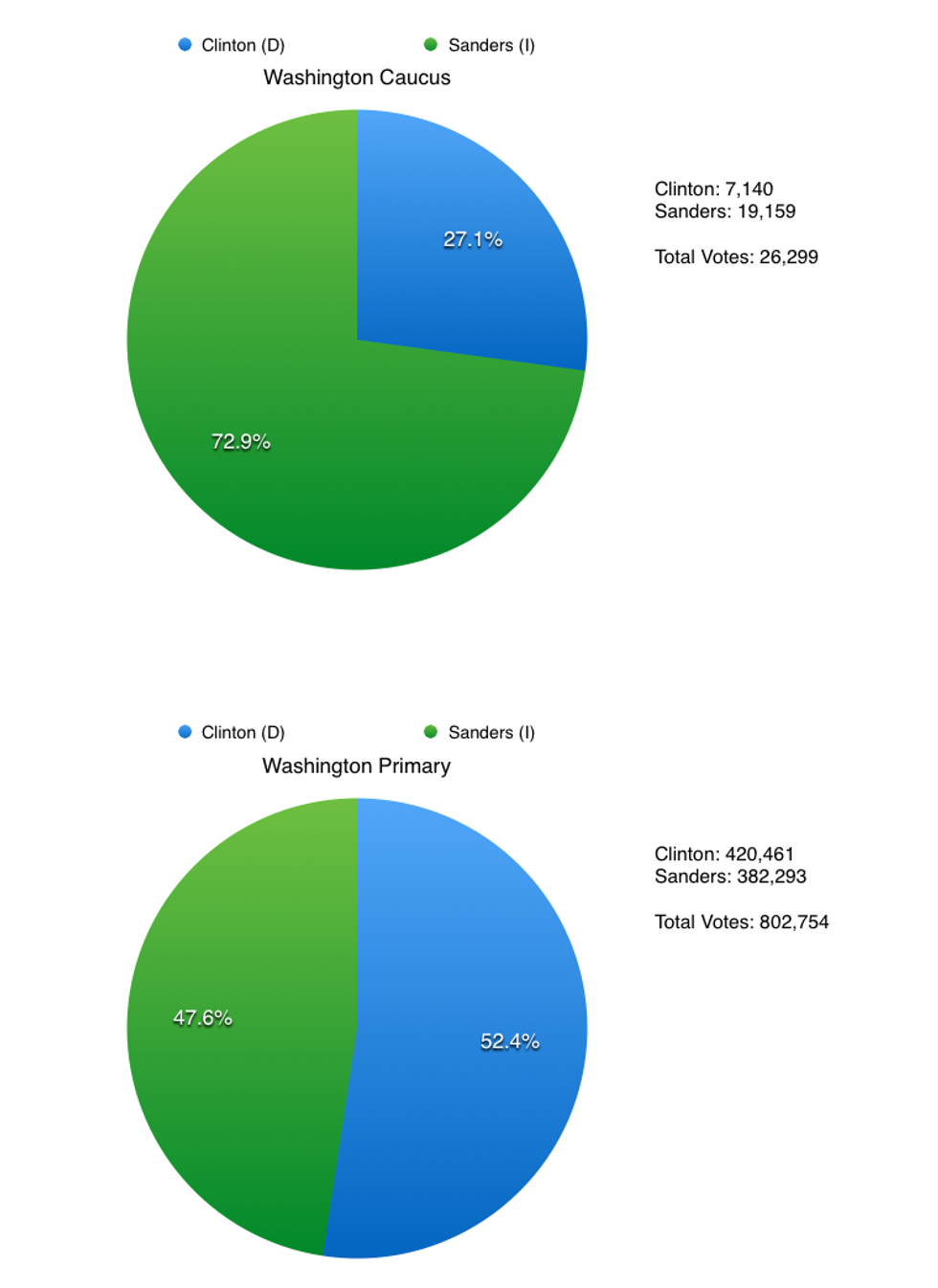America is ruled by the people, and our power comes from our votes at the ballot box.
In order to be a true democracy, we must count every vote cast. However, there is a system in place that silences the voices of the majority. This system is littered with an extremely low turnout, voter disenfranchisement, and mass groupthink. This system is caucuses.
Caucuses are distinctive in that they allow participants to blatantly support their preferred candidate during the voting process - by this, I mean they are allowed to shout, berate, and harass those that don't support their candidate into submission.
There are typically two phases in a caucus. In the first phase, caucus voting happens by a raise of hands or breaking into factions for supported candidates. If there is no distinct majority for a particular candidate (which is the usual case), then caucus-goers can try to sway undecided voters to support their candidate choice.
Furthermore, if there are more than two candidates, and there is an indistinguishable difference between support for two of the candidates, those that were in support of a less-liked candidate are then persuaded to join a certain side or declare themselves uncommitted.
Influential community members are essential to caucuses because they persuade people to participate and support their preferred candidate, which results in mindless groupthink led by those with sway in the area.
In an interview with Raycom News Network, Patrick Murray, director of Monmouth University Polling Institute, said "Martin O'Malley may end up looking like he had zero percent because he may not meet the threshold in some places, but that doesn't mean he didn't have supporters.
There's a lot of jockeying in the Democratic process. You may have started supporting O'Malley, but if he doesn't meet the threshold and your neighbor down the street or your friend is standing with Hillary Clinton, that's where you go."
To make caucuses even worse, they are projected to take two hours minimum. Unless you have hours and hours free on a Saturday to listen to people yell at each other, then caucuses are not convenient for you.
Harvard Kennedy School of Government’s Thomas Patterson has suggested that the caucuses disproportionately affect minorities and low-income earners, as those groups are more likely to have work during caucus hours.
If you are unable to attend the caucus because of military service, religious reasons, a disability, illness, or work, you may fill out a surrogate affidavit; however, you must do so a week in advance, which most people aren't aware of.
So, while there are ways to have your voice heard in this complicated system, the steps are complicated and kept hidden.
The solution to the democratic pitfalls we see in caucuses? Primaries.
Primaries are the most democratic form of selecting a candidate because they are private ballots and fill the "one person, one vote" idea of the Democratic Party.
Primaries are similar to the general election, so they also help prepare candidates for winning against their main political opponent. It only takes a few minutes to cast a ballot in a primary, making it much more accessible to those who don't have the time to spend hours caucusing.
In 2008, the national voter turnout in caucus states was around 6.8%, four times less than the turnout in primary states. 2008 primaries have averaged 400% more voter turnout than in caucuses.
That is millions of people more participating in primaries than in caucuses – much too significant of a number to not see a problem.
Of the 33.5M popular votes in the 2008 Democratic Primaries, caucus votes were only 3.2% of the total, around 1.1M votes. Yet, the 13 caucus states have 23.2M eligible voters.
Massive amounts of voters do not attend caucuses and do not have their voices heard in the electoral process, which is a huge problem.
One of the largest political upsets in the Democratic Party occurred in 2008. Barack Obama won the delegate count for his mastery of the caucus system, meanwhile, Hillary Clinton won the popular vote by dominating primary states.
Clinton conceded in June and then worked to ensure that Obama would become the next President of the United States.
In the 2016 Washington caucus, which determines how the delegates will be distributed, Bernie Sanders won in a landslide. However, only 26,299 people participated in the caucus. In the Washington primary, 802,754 people voted.
This is a significantly different turnout, and Hillary Clinton won the primary by almost 5%.
In this case, every caucus vote carried the same weight as 30.5 popular votes.
Giving caucuses that much weight when a primary has such a larger margin of voter turnout is insanity and, really, unfair to the candidate who gets the actual majority of votes.
We cannot allow people to be bullied and pressured into supporting a candidate.
We cannot allow one voice to have more influence than another.
We cannot allow voter suppression in our party.
If Democrats are going to truly be the party of the people, we must actually start adhering to the people.
In our party, we say every voice matters - one person, one vote. If we are truly going to be the torchbearer for democracy, caucuses must be eliminated and replaced with private-ballot primaries.


















